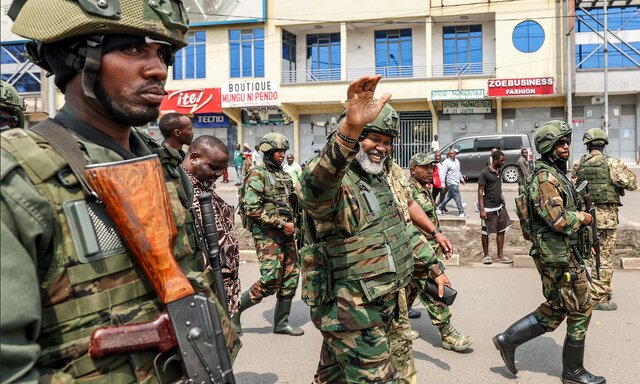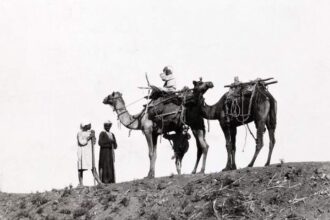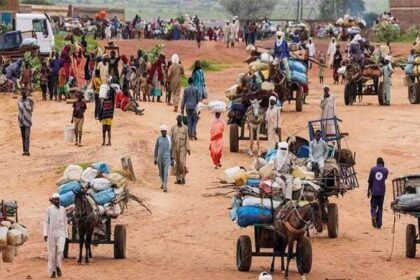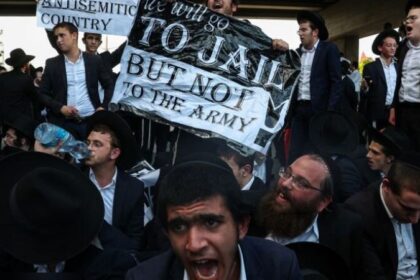The world in the fire; Crises that the West ignores
Western statesmen and media have focused all attention to the Ukrainian war and the Gaza war, where Western interests are in danger. However, around the world is pregnant with crises that will be out of control if not dealt with in time.
According to RCO News Agency, in an article referring to the intensification of global crises in various fields, the British media pointed to a number of critical centers in the global arena, which intensified concerns about the emergence of chaos in the world.
According to the Guardian, the “apocalyptic clock”, which estimates the approaching risk of the global catastrophe, is now set to midnight for 2 seconds, and this is the worst situation in history. This, of course, has clear reasons: nuclear threats, climate change, epidemics, inaccurate information and emerging technologies are all getting worse without proper management.
Environmental and health crises, such as the Los Angeles fires, drought on the coast of Africa and the outbreak of Ebola, have raised concerns about chaos in the world, and governments are inciting this instability by ignoring the United Nations Charter, international borders and human rights.
The Guardian, stressing that even the West is not safe, reports that US President Donald Trump’s threats to capture the island of Greenland shows that the means of military pressure is no longer limited to long -standing enemies. countries such as Panama, Mexico and Canada also feel such pressures from the United States.
The independent organization’s information on the “Event Data Project and the location of armed conflict” shows that political violence increased by 6 % in the year before, and one in every eight people in the world is involved in a dispute.
Wars such as the Palestinian conflict and the Russian -Ukraine war are at the center of the media’s attention, but many conflicts such as the war in Sudan, Congo, Afghanistan, Haiti and Nicaragua have been ignored. In addition, tensions between China and Taiwan as well as the Iranian, US and Zionist conflicts also need more careful oversight.
“The world is addicted to war,” the Guardian, pointing out that these crises are presenting a dark image of today’s world.
Congo’s armed rebels leader
Congo and Rwanda’s conflict
The long clash on the eastern border of the Democratic Republic of Congo, with the occupation of the city of Goma by the March 9 rebel, attracted global attention. The President Rwanda accuses the movement of supporting the movement and sending troops, but he has denied the claim. Despite poverty, the area has rich sources, including Colanan, which is critical to Western industries. The war has displaced thousands, exacerbated sexual violence, and created a health crisis.
The UN Security Council held a meeting to review the crisis; Britain and France condemned Rwanda, and the US supported the Congo rule. Germany has also halted Rwanda talks. The European Union signed an agreement with Rwanda last year, despite being aware of the smuggling of some sources of Congo. The British also praised the president to facilitate the deportation of asylum seekers to Rwanda. The conflict in Congo has been going on for decades and millions have died. So even after the current crisis has subsided, instability will continue.
Myanmar crisis
Armed resistance against Myanmar’s military rule has intensified since the coup. According to British media, the Myanmar army uses “burnt land” tactics, including air strikes, murder, rape, torture and fire, which, according to human rights watchdog, are war crimes. The United Nations has warned Myanmar is collapsing and requires 5 million people in 2 help, but humanitarian aid is often blocked. At the same time, the recruitment is intensified and even reached to children.
The Rohingya minority is still undergoing repression, and according to the British media, the Association has not taken a decisive action in this regard. The Guardian, claiming that Russia supplies military rule weapons, described the Western sanctions as ineffective and insisted that military rulers’ plan to hold elections would probably lead to exacerbation of violence.
Haiti
Haiti, as the poorest country of the Western Hemisphere, is drowned in instability, and US interventions have not been covered by supportive coverage. It was occupied by the United States between the ages of 1 and 2, and Bill Clinton sent 6,000 troops to “establish order”, but failed. The delegations that were deployed by the UN orders also failed to establish sustainable stability.
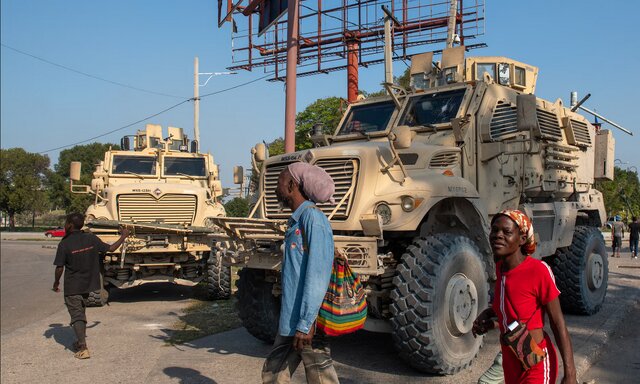
US military vehicles in Haiti
The crisis was recently exacerbated after the assassination of Haiti President Joonel Maeise. Armed groups are now in control of the country with violence, extortion and kidnapping, and Haiti experts see a failed government. The new security mission, led by Kenya, is facing a lack of funds and massacres of criminal groups, including a deadly attack on a Christmas night hospital.
In year 2, more than 5 people were killed and 6,000 were displaced, while nearly five million people face food insecurity. However, Haiti’s suffering continues in global silence, and the decline in foreign aid that Trump has threatened to implement will make things worse.
Ethiopia and Somalia
Ethiopia was once seen as a successful example of development, but in the past few years, with the rise of Ahmed Blue at 1, the notion has changed. His military operations in Tigerra, which was widely violated by human rights, ended with a ceasefire, but all parties, especially the Ethiopian government and the Eritrean forces, were accused of human rights abuses, and these violations continue.
Ahmed’s blue rule reminds of censorship, internet cuts, and tension with Somalia over access to the sea. In the Umra area, there has been widespread repression and arrests. Amnesty International has called the global silence against this repression as “embarrassing” and has called for a return to the rule of law. Some are worried that Amamara, similar to the Tigerra at 1, will see a separatist uprising by year 2.
Syria and Türkiye
Ahmad Shari’a or Abu Muhammad al -Julani, the head of the Tahrir al -Sham delegation, who seized power in Syria last year, has been appointed interim president. A legislative council replaced parliament and all armed groups were required to integrate into the National Army. Despite some hopes, democratic elections are far from years and there are many challenges.
Despite the West’s welcome to the fall of Bashar al -Assad’s government, the United States, the European Union and the Gulf states, they have delayed lifting of sanctions or liberating funds. About 1.5 million people need urgent help and ground mines are a serious threat to civilians. Syria’s internal security is shaken by revenge, ethnic violence, and displacement of 6,000 people on the northern borders as a result of Kurdish clashes with Turkish forces, including current crises in Syria. Without international support, the war may return, according to the Guardian.
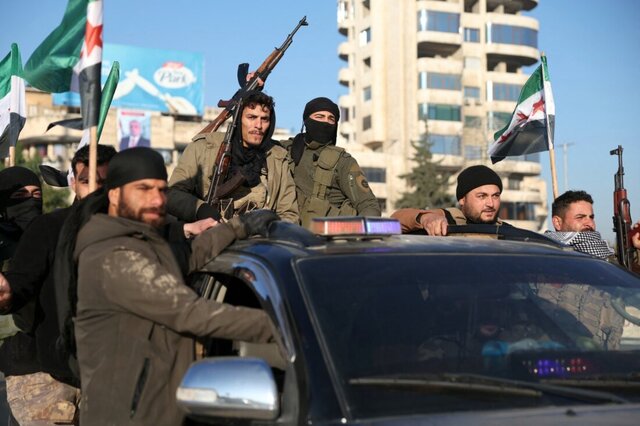
Tahrir al -Sham Board
Sudan
Although the media is trying to make the Sudan crisis “forgotten”, the fact is that the crisis is deliberately ignored. Millions of people have been displaced since year 3 and hundreds of thousands of people are being famine. The Sudanese army and militant forces called the “rapid reaction forces” fight for power, while rapid reaction forces have been accused of genocide in Darfur and non -Arab massacre through mass destruction and sexual violence.
However, in year 2, international attention has been drawn to the Sudan crisis. International Criminal Court Prosecutor Karim Khan has announced that he is planning to arrest the perpetrators of war crimes in Darfur. This is reminiscent of Year 2, when the “Janjid” militias committed similar crimes. It is difficult to stop the wider war in Sudan, and efforts for the ceasefire have made little progress. The International Crisis Group has called for diplomatic efforts, but peace is still out of reach.
Afghanistan and Pakistan
The US withdrawal in Afghanistan diverted the Taliban and destroyed women’s rights. Although Biden’s popularity also declined as a result of the move, Afghan women claimed that Afghan women were most damaged and deprived of their education. The International Criminal Court is now planning to arrest senior Taliban leaders from Habbullah Akhundzadeh and Abdul Hakim Haqqani on charges of gender discrimination.
At the beginning of the year, Afghanistan remains unstable, immersed in poverty and under the threat of ISIS Khorasan. Its neighbor, Pakistan, is facing unrest after a year of political crisis. Former Prime Minister Imran Khan is in prison and current Prime Minister Shahbaz Sharif is supported by the Army. Pakistani Baluchistan militias and the Pakistani Taliban Group are threatening security. Analysts warn that instability will intensify and give the extremists more opportunity.
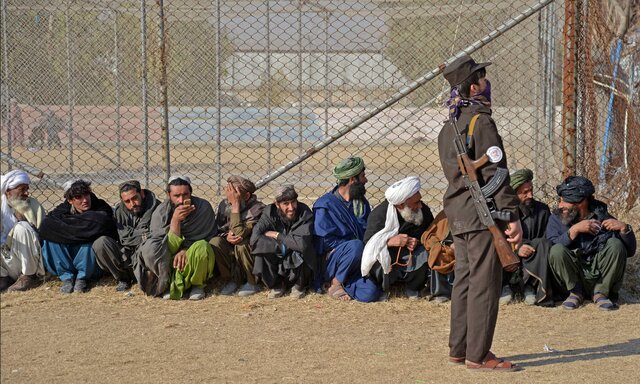
Expect to receive humanitarian aid in Afghanistan
Yemen
Yemen continues to experience one of the worst human crises in the world, but because of its military support for the Palestinian resistance movement during the Gaza war, the media does not pay attention to this humanitarian crisis, according to the Guardian.
The Yemeni civil war continues, despite a ceasefire in Gaza that has reduced Yemen’s Ansarullah attacks on ships related to Zionist regime and its supporters. So far, 6,000 people have been killed and 5 million have food shortages. UN envoy Hans Grundberg has called for a ceasefire, the release of prisoners and economic reconstruction, insisting that resolving the conflict is critical to the stability of the region. Yemen is imported for two -thirds of its food and 2 % of its drugs.
Mexico and America
Mexico’s problems have been exacerbated by Donald Trump’s strict immigration policies and the intensification of military arrangements on the US -Mexico border, according to the Guardian. The US Foreign Relations Council has warned that these measures will cause Mexico’s instability, damage to the regional economy and strengthen criminal cartels.
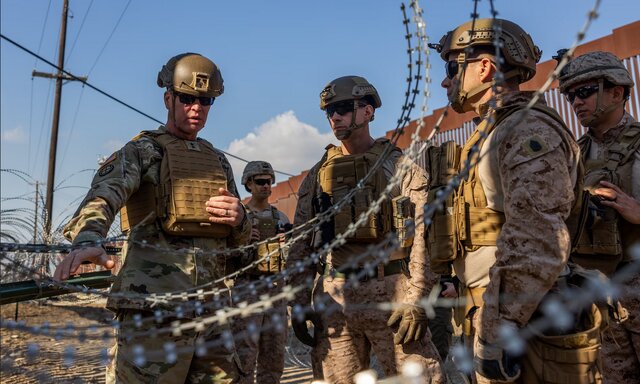
US military at the Mexican border
The new Mexican President Claudia Shinboum is experiencing increased violence by criminal groups. Armed conflicts have increased by about 5 % compared to the year ago. He first proposed the policy of “hugs instead of bullets” to counter violence, but recently adopted a more strict approach by sending troops to Cenalo, one of the world’s largest cartels. Meanwhile, Trump’s “staying in Mexico” policy could undermine Mexico’s fragile stability. Instead of helping this situation, Trump is worse and threatens the security of all two countries.
The end of the message
(Tagstotranslate) America (T) Donald Trump (T) Crisis Management
News>RCO NEWS
RCO




